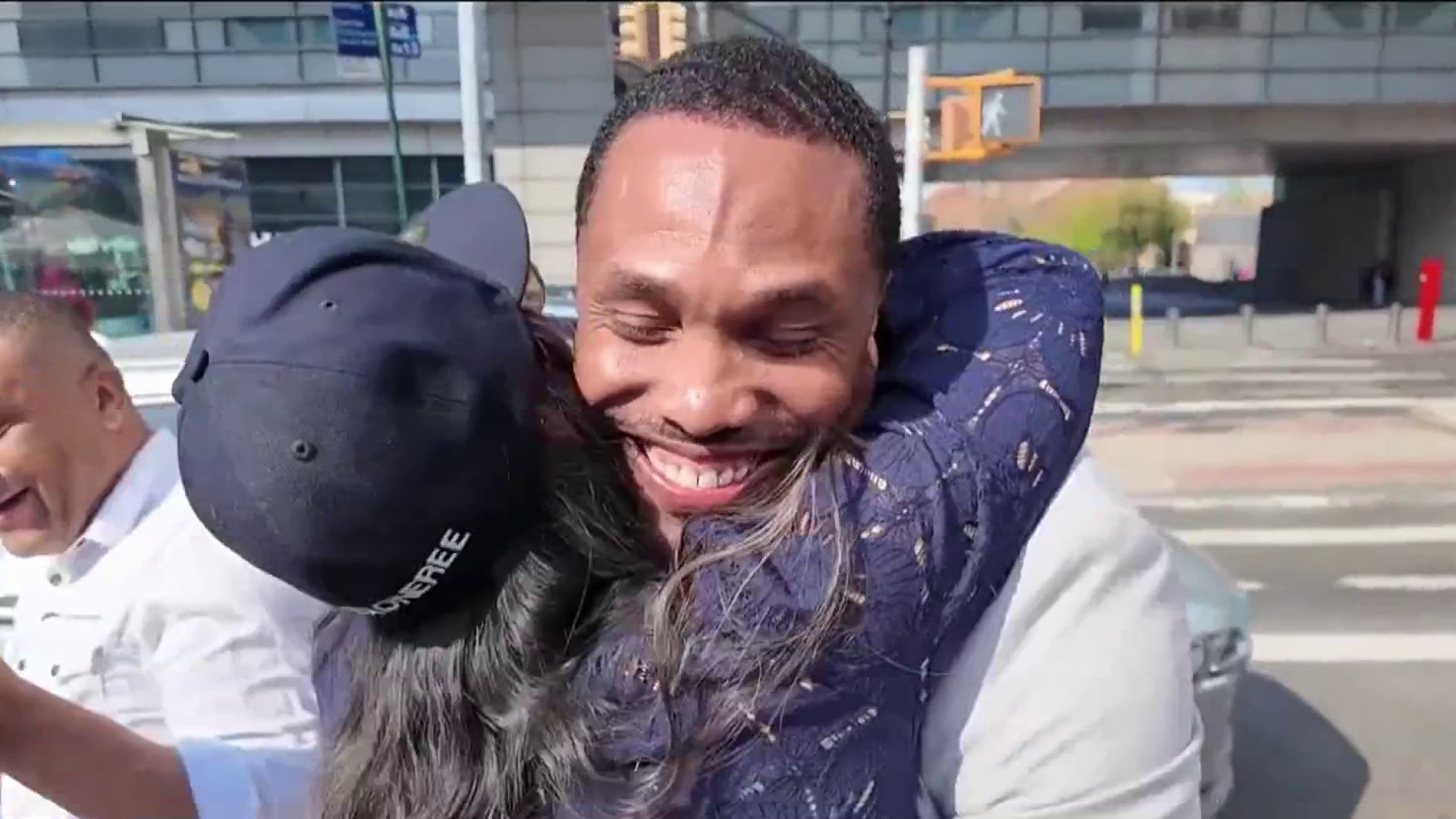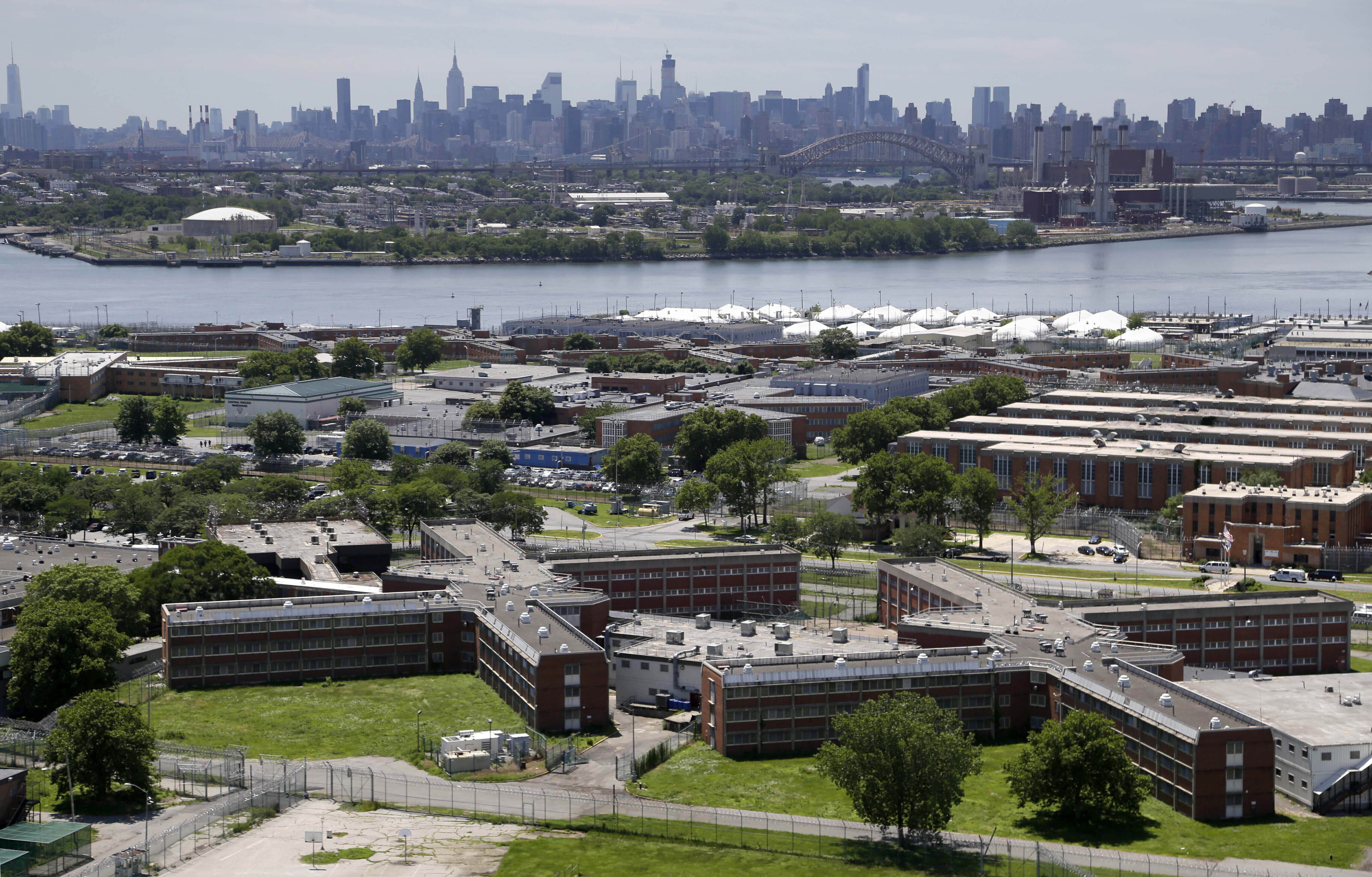Bronx DA Halts Surrender of Wrongfully Convicted Man!
Bronx DA Stalls Surrender of Wrongfully Convicted Man in Last-Minute Twist
A Reprieve at the Eleventh Hour
Imagine living under a dark cloud for 23 years, only to finally taste freedom, build a life, and then be told you have to surrender yourself back to prison. That was the nightmare facing Andre Brown. But in a dramatic turn of events, just hours before he was scheduled to turn himself in, the Bronx District Attorney's Office stepped in. It’s like hitting pause on a movie right before the cliffhanger. The DA agreed to postpone Brown's surrender, buying time to review a motion from his attorney requesting resentencing. Let's dive into the details of this gripping legal saga.
The Original Conviction: A Life Sentence Derailed
In 1999, Andre Brown was handed a crushing 40-year sentence for two counts of attempted murder. He steadfastly maintained his innocence, a beacon of hope in the face of seemingly insurmountable odds. He was trapped in a system that seemed determined to bury him. But hope is a powerful thing, isn't it?
The Burden of Proof and Reasonable Doubt
Did the evidence truly support the conviction? Was there reasonable doubt? These are the questions that linger when a person claims innocence for over two decades. The justice system is designed to protect the innocent, but sometimes, it tragically fails.
The Overturned Conviction: A Glimmer of Hope
Fast forward to 2022. After more than half of his sentence served, a Bronx judge overturned Brown's conviction. The reason? Ineffective assistance of counsel. It was like a lifeline thrown to a drowning man.
Ineffective Assistance: A Lawyer's Duty
What does "ineffective assistance of counsel" even mean? It signifies that Brown's original lawyer failed to provide competent legal representation, potentially compromising his defense. Lawyers have a professional duty to diligently and competently represent their clients. This is a critical aspect of our legal system, designed to ensure fair trials.
A New Life Begins: Family, Community, and Redemption
With his conviction overturned, Andre Brown was finally free. He rebuilt his life with his wife and two children in Connecticut. He wasn't just living; he was thriving. He even trained as a paralegal and dedicated himself to giving back to the community. This is a testament to the human spirit's resilience, isn't it?
The Power of Second Chances
Andre Brown's story is a powerful example of the potential for redemption. He used his freedom to make a positive impact, demonstrating that even after years of wrongful imprisonment, a person can contribute to society.
The Technicality: A Cruel Twist of Fate
Then came the twist: despite the overturned conviction, a technicality threatened to send Brown back to prison. It's a cruel reminder that the legal system isn't always about justice; sometimes, it's about procedure. How can someone be asked to surrender after their conviction was overturned? It feels like a legal Catch-22.
The Resentencing Issue
The core of this technicality likely revolves around the resentencing process. Even with an overturned conviction, further legal proceedings, such as resentencing, may be required to formally close the case. This can be a complex and often frustrating process for those caught in its web.
The Last-Minute Reprieve: A Pause for Review
Just as Brown was preparing to surrender, the Bronx DA's office intervened. They agreed to postpone his surrender while they reviewed his attorney's motion requesting resentencing. This last-minute reprieve offered a glimmer of hope amid despair. It's like a dam holding back a flood of injustice.
The DA's Discretion: Power and Responsibility
District Attorneys wield considerable power within the legal system. They have the discretion to pursue charges, negotiate plea deals, and, as in this case, postpone surrender dates. This power comes with a great deal of responsibility to ensure fairness and justice.
The Motion for Resentencing: A Path to Freedom?
Brown's attorney filed a motion for resentencing. What exactly does that entail? It’s a formal request to the court to reconsider the original sentence, potentially leading to a more lenient outcome or even complete dismissal of the case.
Legal Arguments and Evidence
The success of a motion for resentencing depends on the strength of the legal arguments and the supporting evidence presented to the court. This could include new evidence, arguments about legal errors in the original trial, or mitigating factors that weren't fully considered at the time of sentencing.
The Waiting Game: Uncertainty and Anxiety
Now, Andre Brown and his family are in limbo, waiting for the DA's office to complete its review. The uncertainty must be agonizing. It’s like being on an emotional roller coaster, not knowing whether the next drop will be freedom or imprisonment.
The Emotional Toll on Families
It's crucial to remember the emotional toll this process takes on families. They've already endured years of separation and hardship. The prospect of another separation is devastating. Their support and strength are invaluable.
Community Support: A Rallying Cry for Justice
Stories like Andre Brown's often galvanize communities. People who believe in justice and fairness often rally to support those who have been wronged by the system. This collective voice can be a powerful force for change.
Advocacy and Awareness
Community support can take many forms, including advocacy, fundraising, and raising awareness about the case. This can help to put pressure on the DA's office and the courts to make the right decision.
The Broader Issue: Wrongful Convictions and Systemic Reform
Andre Brown's case highlights a broader problem: wrongful convictions within the justice system. It raises questions about police misconduct, prosecutorial overreach, and the quality of legal representation. His story is not unique, and it underscores the urgent need for systemic reform.
The Importance of Transparency and Accountability
Transparency and accountability are essential to preventing wrongful convictions. This includes ensuring that law enforcement agencies are held accountable for misconduct and that individuals have access to competent legal representation.
Conclusion: A Fight for Freedom Continues
Andre Brown's story is far from over. The postponement of his surrender offers a glimmer of hope, but the outcome remains uncertain. It is a stark reminder of the flaws within our justice system and the ongoing fight for freedom and fairness. His journey underscores the importance of perseverance, community support, and the relentless pursuit of justice. Ultimately, Brown's story emphasizes the critical need for systemic reforms to prevent wrongful convictions and ensure that justice truly prevails.
Frequently Asked Questions
- What does it mean to have a conviction overturned?
Having a conviction overturned means a court has ruled that the original conviction was invalid, often due to legal errors or new evidence. It doesn't automatically mean the person is completely free; further legal proceedings may be required.
- What is "ineffective assistance of counsel"?
It refers to a situation where a defendant's lawyer failed to provide competent legal representation, potentially compromising their defense. This can be grounds for overturning a conviction.
- What is resentencing and why is it important in this case?
Resentencing is the process of a court reconsidering the original sentence imposed on a defendant. In Andre Brown's case, a motion for resentencing is crucial because it could lead to a more lenient outcome, potentially avoiding a return to prison.
- What are the chances of Andre Brown avoiding surrender?
The chances depend on the Bronx DA's review of the resentencing motion and the strength of the legal arguments presented. It's a complex legal process with an uncertain outcome, but the postponement provides a crucial window of opportunity.
- How can I help support people who have been wrongfully convicted?
You can support organizations dedicated to fighting wrongful convictions, advocate for criminal justice reform, and raise awareness about these issues within your community. Donating to legal defense funds and contacting your elected officials can also make a difference.

